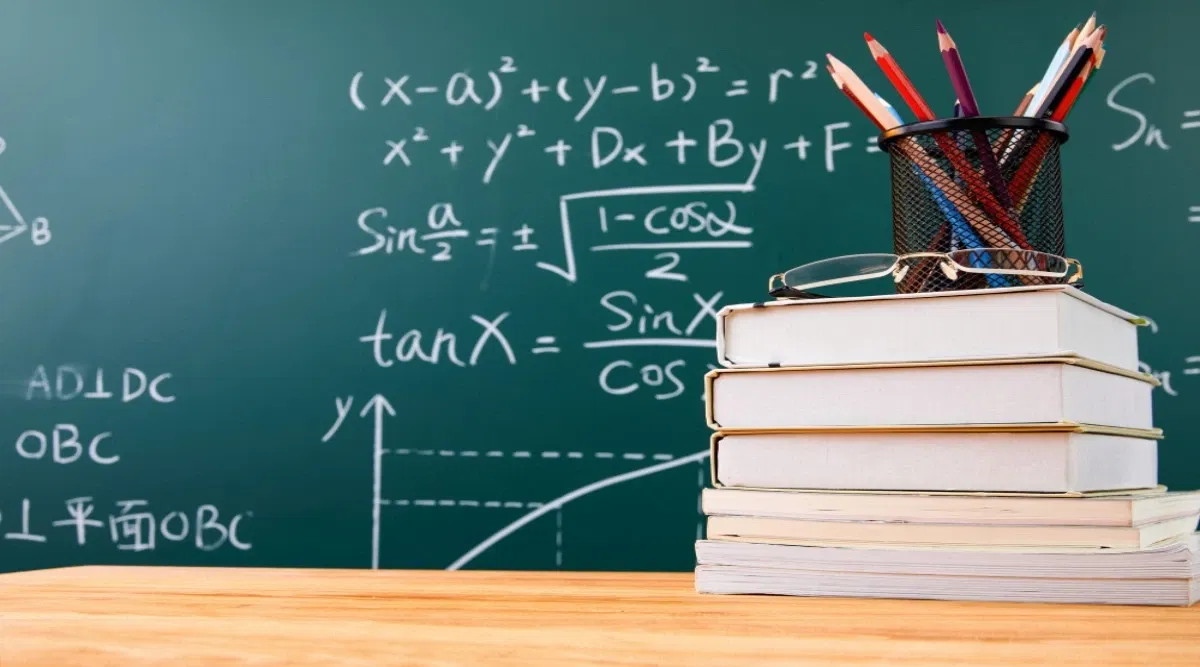
Table of Contents
The GATE statistics syllabus will be released on the official website of IIT Guwahati. The GATE Statistics syllabus contains topics from Calculus, Matrix theory, Probability, Standard Discrete and Continuous univariate distributions, Stochastic processes, Estimation, Testing of hypotheses, Non-parametric statistics, Multivariate analysis, and Regression analysis.
The detailed statistics syllabus of GATE with PDF is mentioned in this article. Apart from that, you can find the exam pattern, previous year’s question papers PDF, best books, and preparation tips to know the important details regarding the GATE examination.
GATE Statistics Syllabus 2026 PDF Download
IIT Guwahati will release the official GATE Statistics Syllabus 2026 PDF on the official website of GATE 2026. You can download the syllabus from the official website, for which the link is given below:
| Particulars | Link |
| GATE Statistics Syllabus 2026 | To Be Updated |
| GATE Statistics Syllabus 2025 | Download Here |
GATE Statistics Syllabus
The GATE 2026 exam will be held online, and the questions from the GATE statistics syllabus hold 85% weight. The topics and subtopics are meticulously mentioned here. You must go through it thoroughly.
Calculus
- Finite, countable and uncountable sets
- Real number system as a complete ordered field, Archimedean property
- Sequences of real numbers, convergence of sequences, bounded sequences, monotonic sequences, Cauchy criterion for convergence
- Series of real numbers, convergence, tests of convergence, alternating series, absolute and conditional convergence
- Power series and radius of convergence
- Functions of a real variable: Limit, continuity, monotone functions, uniform continuity, differentiability, Rolle’s theorem, mean value theorems, Taylor’s theorem, L’Hospital’s rules, maxima and minima, Riemann integration and its properties, improper integrals
- Functions of several real variables: Limit, continuity, partial derivatives, directional derivatives, gradient, Taylor’s theorem, total derivative, maxima and minima, saddle point, method of Lagrange multipliers, double and triple integrals and their applications.
Matrix Theory
- Subspaces of span, linear independence, basis and dimension, row space and column space of a matrix, rank and nullity, row reduced echelon form, trace and determinant, inverse of a matrix, systems of linear equations; Inner products in and, Gram-Schmidt orthonormalization
- Eigenvalues and eigenvectors, characteristic polynomial, Cayley-Hamilton theorem, symmetric, skew-symmetric, Hermitian, skew-Hermitian, orthogonal, unitary matrices and their eigenvalues, change of basis matrix, equivalence and similarity, diagonalizability, positive definite and positive semi-definite matrices and their properties, quadratic forms, singular value decomposition.
Probability
- Axiomatic definition of probability, properties of probability function, conditional probability, Bayes’ theorem, independence of events
- Random variables and their distributions, distribution function, probability mass function, probability density function and their properties, expectation, moments and moment generating function, quantiles, distribution of functions of a random variable, Chebyshev, Markov, and Jensen inequalities.
Standard, Discrete, and Continuous univariate distributions
- Bernoulli, binomial, geometric, negative binomial, hypergeometric, discrete uniform, Poisson, continuous uniform, exponential, gamma, beta, Weibull, normal.
- Jointly distributed random variables and their distribution functions, probability mass function, probability density function and their properties, marginal and conditional distributions, conditional expectation and moments, product moments, simple correlation coefficient, joint moment generating function, independence of random variables, functions of random vector and their distributions, distributions of order statistics, joint and marginal distributions of order statistics
- Multinomial distribution, bivariate normal distribution, sampling distributions: central, chi-square, central t, and central F distributions.
- Convergence in distribution, convergence in probability, convergence almost surely, convergence in r-th mean and their inter-relations, Slutsky’s lemma, Borel-Cantelli lemma
- Weak and strong laws of large numbers; central limit theorem for i.i.d. random variables, delta method.
Stochastic Processes
- Markov chains with finite and countable state space, classification of states, limiting behaviour of n-step transition probabilities, stationary distribution, Poisson process, birth-and-death process, pure-birth process, pure-death process, Brownian motion and its basic properties.
Estimation
- Sufficiency, minimal sufficiency, factorization theorem, completeness, completeness of exponential families, ancillary statistic, Basu’s theorem and its applications, unbiased estimation, uniformly minimum variance unbiased estimation, Rao-Blackwell theorem, Lehmann-Scheffe theorem, Cramer-Rao inequality, consistent estimators, method of moments estimators, method of maximum likelihood estimators and their properties
- Interval estimation: pivotal quantities and confidence intervals based on them, coverage probability.
Testing of Hypotheses
- Neyman-Pearson lemma, most powerful tests, monotone likelihood ratio (MLR) property, uniformly most powerful tests, uniformly most powerful tests for families having MLR property, uniformly most powerful unbiased tests, uniformly most powerful unbiased tests for exponential families, likelihood ratio tests, large sample tests.
Non-parametric Statistics
- Empirical distribution function and its properties, goodness of fit tests, chisquare test, Kolmogorov-Smirnov test, sign test, Wilcoxon signed rank test, Mann-Whitney U-test, rank correlation coefficients of Spearman and Kendall.
Multivariate Analysis
- Multivariate normal distribution: properties, conditional and marginal distributions, maximum likelihood estimation of mean vector and dispersion matrix, Hotelling’s T2 test, Wishart distribution and its basic properties, multiple and partial correlation coefficients and their basic properties.
Regression Analysis
- Simple and multiple linear regression, R2 and adjusted R2 and their applications, distributions of quadratic forms of random vectors: Fisher-Cochran theorem, GaussMarkov theorem, tests for regression coefficients, confidence intervals.
GATE Statistics Syllabus Weightage
The probability topic carries the highest weightage of 20%. The other topics carry a weight of 15%, 10%, and 8%. Refer to the table to know the details:
| Topics | Weightage |
| Probability | 20% |
| Calculus | 15% |
| Multivariate Analysis | 10% |
| Matrix Theory | 8% |
| Stochastic Processes | 8% |
| Estimation | 8% |
| Testing of Hypotheses | 8% |
| Regression Analysis | 8% |
Read More: GATE Syllabus
GATE Statistics Exam Pattern & Marking Scheme
Like the other papers, the GATE statistics syllabus will carry 85% of the weightage. The general aptitude paper will carry 15% weightage as usual. The detailed GATE exam pattern and marking pattern are tabulated below.
| Particulars | Details |
| Mode of Exam | Computer Based Test (CBT) |
| Time Limit | 180 Minutes |
| Question Pattern | MCQs and NATs |
| Areas of Question | |
| General Aptitude: 15 Marks | 5 questions of 1 mark each |
| 5 questions of 2 marks each | |
| Statistics Questions: 85 Marks | 25 questions of 1 mark each |
| 30 questions of 2 marks each | |
| Total Marks | 100 Marks |
| Correct Answer | 1 & 2 Marks |
| Incorrect Answers | ⅓ Marks will be deducted for 1 mark MCQ questions |
| ⅔ marks will be deducted for 2 marks MCQ questions | |
| No negative marking for NAT questions | |
| Best Attempt | 85-100 Marks |
GATE Statistics Previous Year’s Question Paper
The proper understanding of any exam is always available in the previous year’s question papers. Therefore, for the benefit of all aspiring you, here are the PDF links:
| Previous Year’s Question Paper | PDF Links |
| GATE Statistics 2025 Question Paper | Download Now |
| GATE Statistics 2024 Question Paper | Download Now |
| GATE Statistics 2023 Question Paper | Download PDF |
| GATE Statistics 2022 Question Paper | Download PDF |
| GATE Statistics 2021 Question Paper | Download PDF |
| GATE Statistics 2020 Question Paper | Download PDF |
| GATE Statistics 2019 Question Paper | Download PDF |
Practice Now: GATE Previous Year Question Papers
GATE Statistics Best Books
Only selected books are available in the market for the GATE statistics syllabus. The books listed below are available for online purchase. You must buy the books that suit their needs at the moment.
| Statistics Reference Books | Author’s Name/ Publications |
| The Foundations of Statistics | Leonard J. Savage |
| Probability and Statistics | Murray R Spiegel, John J Schiller, and R Alu Srinivasan |
| Miller and Freund’s Probability and Statistics For Engineers | Pearson |
| GATE Statistics 2019 Practice Question Bank with topic-wise | Rajendra Dubey and Dr. Puneet Pasricha |
Read More: GATE Books
GATE Statistics Syllabus Preparation Tips
The GATE statistics syllabus requires optimum focus and dedication. Since GATE is comparatively tougher than any other exam, the difficulty level is high. Therefore, here are some of the GATE Preparation tips to crack the exam.
- Know the Statistics Syllabus: The preliminary idea is to know in-depth about the syllabus and the weightage of the entire syllabus. Get to know the areas that carry high weightage and marking schemes.
- Construct a Schedule: Divide the syllabus according to the weightage. Cover the areas that require more attention first. Progress to the syllabus as per the need of the hour. Complete the syllabus at least 10-15 days before the exam.
- Time for Revision: Revise the syllabus thoroughly after the topics are covered. There is no substitute for revision. Practice solving the problems from the previous year’s syllabus.
- Go for Mock Tests: To get a perfect score, one must appear for mock tests. It serves as an excellent reflection of the preparation and the areas that need improvement.






































